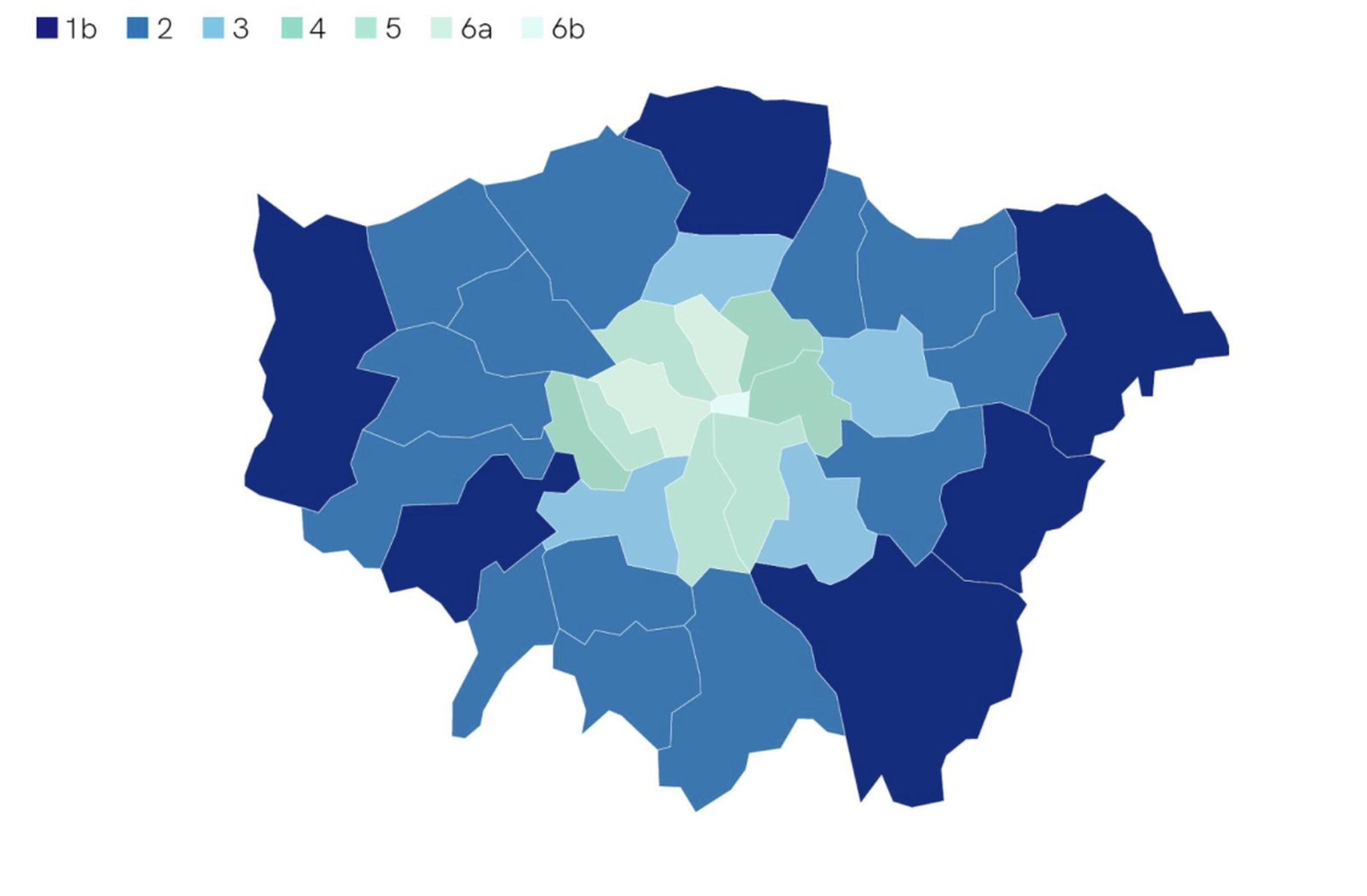

People living in outer London suffer from a lack of reliable and convenient alternatives to driving such as public transport links compared with those in inner boroughs, according to a new report by think tank Centre for London.
In outer London, the travel environment is focused more on private car use, with less public transport and lower densities of cycle lanes, cycle parking and shared car and bike schemes, says the report.
This lack of good alternatives means that many find it difficult to give up their cars, says the think tank. It found that 69% of households in outer London have access to or own a car, compared with 42% in inner London and 77% across England as a whole.
In outer London, driving is used for travel twice as much as within inner London – 38% of journeys compared with 19%.
Mayor of London Sadiq Khan should develop an Outer London Transport Strategy to systematically consider people’s travel needs – “with more weight given to local journeys that don’t commence or terminate in central London”. This will support the shorter trips that are disproportionately made by women, as opposed to longer trips for commuting, the report states, adding that decision makers should always consider the equality impacts of transport planning decisions.
Improvements that make it easier to walk or cycle vary in cost in the capital, with the cost largely covered by councils, Centre for London observes. “However, the application process for some funds is time-consuming and inefficient, posing a barrier for local authorities with limited time resources and squeezed budgets,” says the report.
“Local authorities face financial and political barriers to reallocating road space for more sustainable uses.”
The coverage of the cycle network in outer London should be increased, says the think tank. It calls on Transport for London and local authorities to prioritise safe, segregated cycle lanes suitable for a range of micromobility vehicles. “New routes should support local journeys for leisure and family purposes as much as journeys into central London.”
Space should be allocated to sustainable modes, with councils finding on-street space for cycle hangars, shared micromobility schemes, and car club vehicles “even if this means reallocating space allocated to private cars”, says the report.
More should also be done to encourage shared transport, says the report. London Councils or the Greater London Authority should work with councils to design a procurement framework for modes such as car clubs and shared bike schemes, making it easier to share best practice. “Local authorities may choose to jointly procure shared services, temporarily reduce fees for operators to increase coverage in areas with lower population density, or to require new developments to provide space for shared vehicles by default.”
New public transport routes should be an integral part of new developments, states the report. “TfL should commit to introducing new bus routes for new developments before those developments are completed, so that they can offer better public transport links and less car parking. This could be paid for partly through the early release of developer funding (or borrowing against such funding), but additional funding may also be required.”
While some progress has been made on providing active travel infrastructure, there has been less progress on bus expansion, the think tank notes. “The recently announced ‘Superloop’ orbital bus route may improve this. The Covid-19 pandemic and the financial problems it caused for TfL have made public transport improvements much harder, but the underlying need for more sustainable options has not changed.”
TfL should also commit to introducing new bus routes for new developments before those developments are completed, the report suggests. This would make it possible to offer better public transport links and less car parking, it says. “This could be paid for partly through the early release of developer funding (or borrowing against such funding), but additional funding may also be required.”
The DfT should work with Transport for London to improve the reliability, speed and frequency of services in outer London, the think tank says. “Although capital investment will be needed, improvements will deliver a range of long-term benefits – including making it easier to travel into and around London.”
Moving with the Times: Supporting sustainable travel in outer London

TransportXtra is part of Landor LINKS
© 2026 TransportXtra | Landor LINKS Ltd | All Rights Reserved
Subscriptions, Magazines & Online Access Enquires
[Frequently Asked Questions]
Email: subs.ltt@landor.co.uk | Tel: +44 (0) 20 7091 7959
Shop & Accounts Enquires
Email: accounts@landor.co.uk | Tel: +44 (0) 20 7091 7855
Advertising Sales & Recruitment Enquires
Email: daniel@landor.co.uk | Tel: +44 (0) 20 7091 7861
Events & Conference Enquires
Email: conferences@landor.co.uk | Tel: +44 (0) 20 7091 7865
Press Releases & Editorial Enquires
Email: info@transportxtra.com | Tel: +44 (0) 20 7091 7875
Privacy Policy | Terms and Conditions | Advertise
Web design london by Brainiac Media 2020